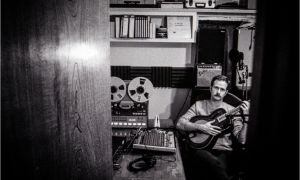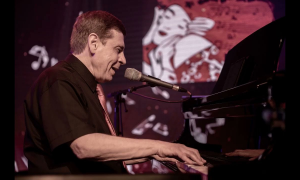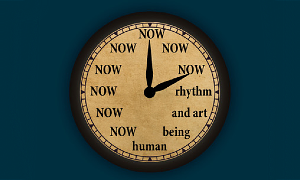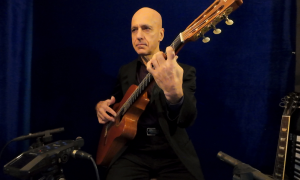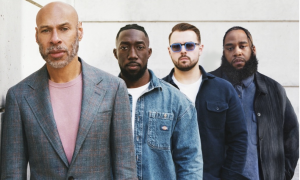For the full story, visit the series home page:
How I Became a Broadway Musician
How Do I Get On a Broadway Tour?I decided about half way through 2006 that I wanted to get a job on a Broadway tour. Like everything else, I had no idea where to start and there didn’t seem to be much information online or at the library.
One of the readers of the Chronicles of a Cruise Ship Musician was a guy that had toured with Les Mis and Cats for 15 years. Michael is his name – he lives out in Mesa, Arizona these days and is still a really killing player (I ended up playing a gig with him a few years later!). It was his advice and encouragement that landed me my first work outside of Chicago.
He told me to join the American Federation of Musicians and he gave me the names and phone numbers of two Broadway contractors. He told me to give them a call and tell them I was looking for work and willing to tour.
Broadway gigs are protected by union contracts through the American Federation of Musicians.
I joined the union well before I got a job on Broadway – not because I had union gigs, but because I wanted to be taken seriously when union gigs came along. Also, I knew I’d have to join eventually if I really wanted to do this work.
For more on this topic, read this article:
So I paid my dues and joined the union. I waited for my union card to arrive, then I called the first contractor on the list. It went a little like this:
Me: “Hi. My name’s Dave, I’m a keyboard player. I’m looking for work and I’d be very grateful if you kept me in mind in the future.”
Contractor: “Ok, great. So what kind of work have you done? ”
Me: “Well, I played keyboards on a cruise ship for awhile, I studied jazz piano at college, I’ve played in a lot of bands and I’ve worked in theatre for the past 10 years.”
Contractor: “Ok. Well...I’ve got this gig I happen to need a keyboard player for...it’s a short tour in Taiwan and it leaves in two weeks. Can you do it?”
No joke, that was the whole conversation. He hired me on the spot. I assure you that is not normally how it goes.
Much later the contractor told me that he’d just gotten off the phone with a keyboard player that bailed on him. He took it as good fortune that I was the next call and hired me.
Lucky break, I guess you could say.
I left for Taiwan two weeks later.
Tour #1Taiwan was great. I played 2nd keyboards in a Broadway revue that traveled all around the island. I met a lot of other musicians from New York and elsewhere. I took the gig very seriously. I played my best and I got along with everyone.
The next opportunity came before the tour was even over.
The music director of our tour was asked to music direct the North American tour of Leonard Bernstein’s Wonderful Town, which had been on Broadway the year before and had never been picked up for a equity tour. The schedule was tough (non- equity gigs are like that) and he didn’t want to do it – but he told the contractor that he liked me and that they should consider offering me the job to me. They did and I took it.
That is often how, and how fast, these things happen. No interviews, no auditions – just one word-of-mouth recommendation from someone with authority can land you a really amazing job in this business.
I returned from Taiwan on a Sunday, and I had to be in New York ready to go one week later. It was a 9-month, non-equity, bus-and-truck tour that traveled all over the U.S. and Canada. I was to be the music director and standing conductor.
Tour #2We rehearsed the show in New York City at Ripley-Greer studios on 8th Ave. It was my first taste of a gig in New York.
I could tell you that everything went great and that I was perfectly qualified for the gig from day one – but here’s the truth: I made a ton of mistakes. I sometimes music directed like a complete fool. I made some enemies and not everything went the way it was supposed to.
But you know what? I didn’t make the same mistake twice. It was a difficult and humbling process, but by the end of those 9 months I had become a markedly improved conductor and music director. I still use the lessons I learned on that job. It was a very valuable experience.
Regional TheatersThe tour ended in 2007. I found that it was a lot easier to find work once I’d been the music director on a national tour. I was a little burned out on touring just then, though, so I turned to work in regional theaters.
MusicianWages.com hosts a job board for regional theatre companies seeking music directors. If you are interested in these kinds of jobs you should bookmark that page, visit often and subscribe to it’s RSS feed.
The page is moderated by Geraldine Boyer-Cussac (twitter: @MusicTheatreMD).
If you are a theatre music director, you should also visit and join these resources:
Music Director Groups
Yahoo email list: Ask questions to MDs in this private email list where only MDs are allowed in
Twitter : Network in a fun way with other MDs @MusicTheatreMD
Facebook: Find and post articles, videos and jobs
There is a loose, national network of regional theaters that are always hiring and housing music directors for their shows. It was another good place for me to gain some credits, learn from (sigh...more) mistakes and hone my skills as an MD.
I worked in Indiana, Virginia, Arizona and upstate New York. I worked the scene for about two years. I enjoyed it. I met more and more performers and creative staff that lived in New York. Everyone seemed to be coming from or returning to “the city”.
By the time I was done with tour and regional houses I felt really confident in my music directing. I’d learned a lot (and stopped making amateur mistakes). I’d met a lot of people and I was receiving positive and encouraging feedback from my colleagues onstage and in the pit.
I felt like I was out-growing the scene and ready to move on to New York.
Moving to a rat hole apartment in Queens would knock me back down a peg.
I didn’t think moving to New York City would be easy – and I was right. Come back tomorrow and I’ll tell you that part of the story.












